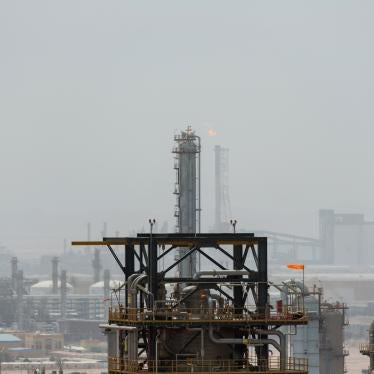Dubai confirmed its position as an international trade hub for gold in April. At a precious metals conference in the city, the United Arab Emirates’ government announced that the gold traded in the country in 2012 exceeded $70 billion, more than a quarter of the world’s global gold demand that year. Gold refiners and traders like Dubai as a tax-free, business-friendly, well-functioning location.
I recently had a chance to see for myself — I met with gold companies at Dubai’s Gold Souk as well as Jumeirah Lakes Free Trade Zone, where shiny skyscrapers in extraordinary shapes house some of Dubai’s precious metals companies.
The wealth of Dubai’s gold companies contrasts sharply with the poor conditions under which some of the gold is being mined. According to the International Labor Organization, more than 1 million children work in mining globally. In mining areas across Africa, Asia, and Latin America children as young as 6 work in small-scale gold mining and risk their lives as a result.
They work in unstable shafts that often collapse, haul backbreaking loads of heavy ore, and use toxic mercury to separate the gold from the ore. During field research in Tanzania in late 2012, Human Rights Watch interviewed 61 children working in gold mining. A 14-year old-boy retold how a mine pit collapsed on him. He was hospitalized and said “I fear a lot.”
Nineteen children also described how they handle mercury on a regular basis, often with their bare hands, when they create a mercury-gold amalgam which they or others then burn, causing the mercury to evaporate and leaving behind the raw gold. Mercury causes brain damage and is particularly harmful to children — to those who breathe in the fumes because they work or live nearby as well as those who work with it.
Tanzanian traders and officials told us that Dubai is one of the export destinations for Tanzania’s gold.
The gold industry has a responsibility to ensure that gold is not being mined under conditions that violate human rights. In line with the 2011 United Nations Guiding Principles on Business and Human Rights, companies should implement due diligence to ensure they do not benefit from unlawful child labor, directly or indirectly. Much more needs to be done to reach that goal.
One important opportunity for action is Dubai’s initiative for responsible sourcing of gold. At the precious metals conference in Dubai, the Dubai Multi Commodities Center — a government regulatory body and licensing authority for the Jumeirah Free Zone — presented its guidance standard for responsible sourcing, aimed at preventing support for warlords in conflict countries. This had become extremely necessary as a UN investigation found Dubai had been involved in illicit gold trade benefiting armed groups in the Democratic Republic of Congo. The guidance seeks to ensure that precious metals companies conduct due diligence and develop a risk management framework. It closely follows a standard developed by the Organization for Economic Cooperation and Development.
Unfortunately, the Dubai standard for responsible gold does not seek to address child labor in the supply chain. It is also purely voluntary and therefore lacks teeth. Dubai’s guidance, like several other voluntary standards for “responsible gold”, was developed after the United States adopted a law requiring publicly-listed extractives companies to disclose the source of minerals that originate from the war-torn Democratic Republic of Congo and neighboring countries. The law — part of the Dodd-Frank Act — is unusual because it makes due diligence a legal requirement.
To ensure that gold businesses in Dubai respect and protect rights, due diligence procedures should be made mandatory and include measures to check for child labor. And if child labor is found in a company’s supply chain, the company should make specific efforts to address the problem, for example by helping to transition children out of work and into education.
Dubai should use its position, as a leader in the gold trade, to advance the rights of children at the bottom of the gold supply chain.






